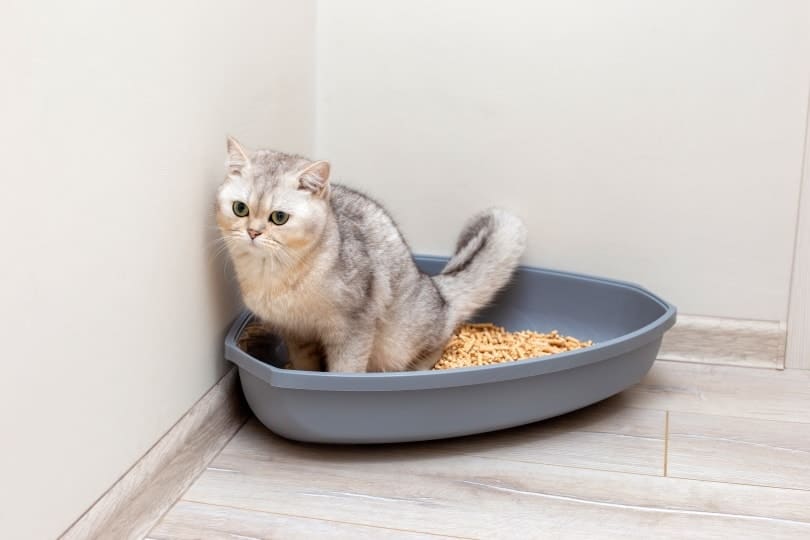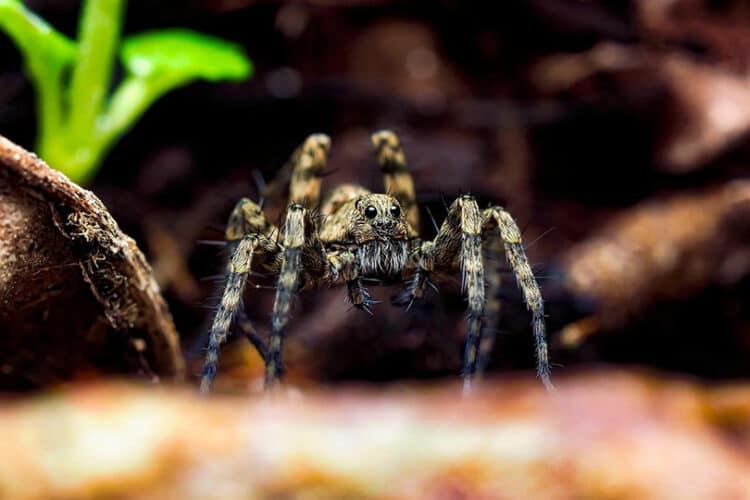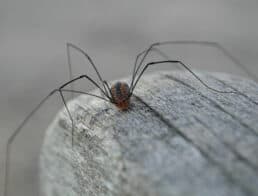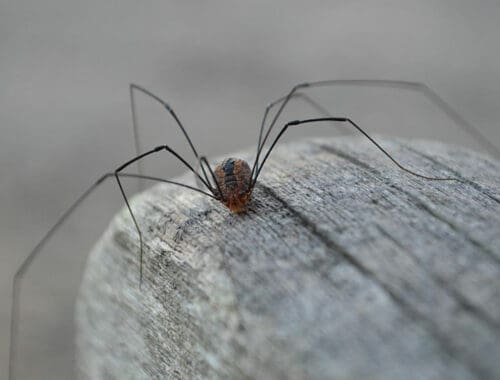Cats are known for killing and even eating spiders. And while wolf spiders don’t necessarily look like wolves, they’re just as dangerous. These hairy, medium-sized spiders are different from other species as they can’t actually spin webs.
Instead of spinning webs, they actually hunt down their prey and pounce on them, paralyzing them with their venom. But do these spiders pose a hazard to domestic cats? And is there venom potentially fatal to our feline friends?
Are Wolf Spiders Poisonous?
Yes, the venom from wolf spiders is dangerous for cats as well as dogs. It’s actually more dangerous for cats because they’re smaller and more likely to suffer from more severe symptoms–as are most animals that are injected with the venom.
If you happen to be bitten by a wolf spider, it may be fairly insignificant from a medical standpoint, and it usually won’t present any big problems for you.
However, for your cat, the bite can prove fatal, especially if the cat doesn’t receive medical treatment fast enough. In just as little as an hour your cat can actually die from being bitten by a wolf spider. The age of the wolf spider will also play a part in how deadly its venom is.
Bigger spiders will have more venom (and thus, larger bites), which can cause a more serious bite. Normally, the spiders will try to stay away from larger animals, including cats and dogs, because they’ll feel intimidated by their size. However, if the spider feels intimidated by the cat and feels threatened, it may bite it as a defense mechanism.
These spiders can grow anywhere from 1 to 1 1/2 inches in size, and they’re often mistaken for the popular brown recluse spider, due to their similar color patterns. Though they may appear aggressive, they’re actually not. Their initial impulse upon interaction with humans and pets is to simply retreat.
Signs of A Wolf Spider Bite In Cats
Cats will usually display signs that they’ve been bitten by a wolf spider within a matter of seconds, as the venom typically acts immediately.
Common signs include trembling, swelling around the bite, restlessness, diarrhea, and lethargy. And in some cases, you may not notice any signs in your cat at all. But if you notice any of these signs in your cat, it’s best to take it to the nearest vet hospital as soon as you can. And note that your cat can actually die from a wolf spider within a short period of time if it doesn’t receive prompt treatment.

How Do Vets Treat Wolf Spider Bites
Veterinarians usually treat animal spider bites symptomatically by prescribing supportive care and medication, all depending on the severity of the bite. The typical treatment will involve collecting blood samples from your cat to monitor its progress. They may also give your cat an IV to counteract the necrotizing nature of the venom and to reduce its blood pressure, as the venom commonly causes an increase.
How To Help Your Cat Avoid Spider Bites
It’s important to note that wolf spiders aren’t necessarily inclined to bite cats or people. Most bite incidents will occur from some sort of accident or if the spider is in fear of its life. The best way to prevent your cat from encountering one is to prevent it from spending time in spaces where these creepy crawlers may lurk. This includes common outdoor areas such as beneath porches, near wood piles, inside sheds, unfinished basements, and attics.
How To Keep Wolf Spiders Away
If you noticed an influx of spiders in or around your home, it may be time to take a few extra measures to keep these bugs at bay. The easiest and most readily available method would be to simply spray pesticides around the exterior and interior perimeters of your home.
Be sure to get the areas where the wall meets the floors as well as the bottom of the door jambs. Many of these pesticides are also hazardous to pets, so be sure to look at the chemicals they contain and use them with caution.

Keep Areas Around the Home Clean
Cleanliness practices always help to keep home pests away. Be sure to keep the interior of your home free from debris and always put organic trash in small bags first or in trash cans with closed lids. Outside, be sure to trim the hedges and clear bushes. If you have piles of leaves or wood, clear them away as soon as possible, as these spiders love to nest in these types of hidden environments.
Seal All Cracks
One of the best things that you can do to keep these bugs out is to seal any cracks leading to the inside of your home. Pay attention to areas around windows, doors, and the foundation. You can use any type of concrete, silicone, or acrylic sealant– depending on the surface. Just make sure that it’s waterproof.
Wrapping Things Up
Wolf spiders are in fact poisonous to cats, and it’s best to take measures so that your cat avoids them at all costs. Things such as keeping your home clean and free of debris, as well as using pet-safe pesticides can help keep these bugs away from your cat and other pets.
Featured Image Credit: Pixabay
















